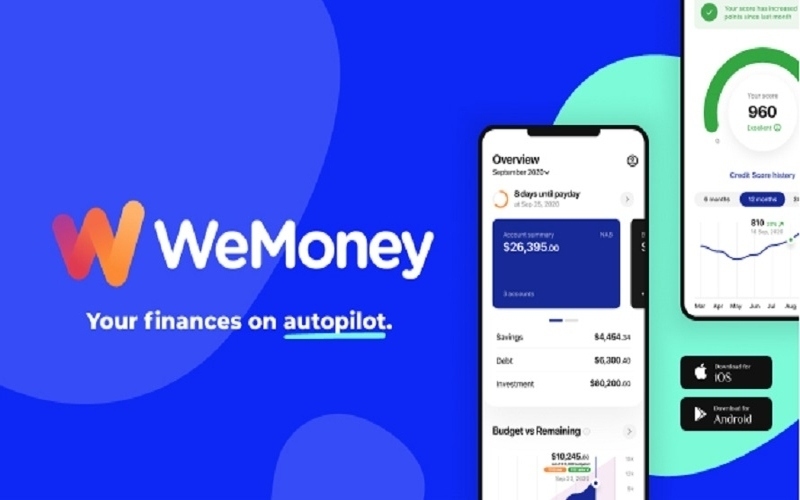Writing and responding to emails, crafting social media posts, planning travel itineraries, and answering complex financial questions are some of the most popular use cases for the artificial intelligence (AI) chatbot, according to a survey by Forbes Advisor.
AI chatbots like ChatGPT can be a powerful tool for overhauling your personal finances. They can analyse your spending habits and unearth hidden savings opportunities, help you create a budget that fits your lifestyle, and translate financial mumbo jumbo into everyday language. Confused about negative gearing? No worries, AI speaks plain English and can explain anything.
Here are some ChatGPT money saving hacks.
Create a budget plan
Sitting down and making a budget can be painful, but ChatGPT can help you create a detailed monthly budget based on your income and expenses. Just write down your monthly income, then information about your expenses like how much you spend on groceries, rent/mortgage, bills, transport and any other recurring expenses. Then identify your financial goal/s - whether it's saving a certain amount of money each fortnight or saving up for something in particular. For example, you might write to ChatGPT:
"I need help creating a monthly budget. I have an income of $3,500, rent is $1,200, utilities are $150, groceries are $300, and I have a car loan payment of $250. I also want to save $500 each month."
Using the information you provide (the more data you give it, the better), it will spit out a detailed budget template tailored to your specific needs.
AI chatbots like ChatGPT are only as good as the prompts you give it. A tried and true prompt formula that will give you the best results is context + what you want ChatGPT to do + how you want the output given to you. So in this instance, you might say:
"Here are my last 30 days of bank transactions. I want you go to through it and categorise all the expenses into different categories. Then I want you to create an Excel spreadsheet that has the totals for each category and highlight areas where I could potentially save money."
Understand complex financial concepts
A common hurdle many people face when it comes to understanding finance and investments is grappling with all the technical terminology and complex financial concepts. Because ChatGPT is a language model, it really shines as a useful tool for explaining complex financial issues in plain English. For example, I asked it, 'Can you explain what dollar-cost averaging is in simple terms, using an analogy to make it easier?'
ChatGPT responded with an analogy that likened dollar-cost averaging to shopping for groceries during different times of the year. It explained that like the price of tomatoes, the price of stocks can fluctuate throughout the year. Instead of trying to buy tomatoes only when they are cheapest, you buy a set amount every week. Over time, this means you might pay more some weeks and less other weeks, but overall, you get a fair average price. Similarly, with dollar-cost averaging, you invest a fixed amount of money regularly, regardless of the stock price, which can help mitigate the impact of market volatility.
Identify areas where you can save
Download your transaction history from your bank and upload it into ChatGPT, and ask it to analyse all of your recurring expenses like subscriptions, and ask it to identify any areas where you could be saving money. I asked it to calculate how much money my subscriptions were costing each month and how much money I could potentially save each year by cutting them out.
ChatGPT can break down your spending into categories, highlight patterns, and identify areas where you may be overspending. It can suggest alternative options, such as switching to a lower-cost service or consolidating multiple subscriptions.
Of course, many banking apps nowadays come with built-in spending trackers that categorise your expenses and provide insights into your spending habits. However, not all banking apps have this feature (mine does not). If your banking app lacks these capabilities, using ChatGPT can be a good alternative.
Use it to compare products and prices
If you're in the market to buy a new couch, laptop, or any other item, it's easy to spend countless hours browsing the web, looking at various brands and comparing your options. ChatGPT can do that work for you in a matter of seconds. For example, I asked it:
"I would like to buy a new couch. I would like a three-seater sectional sofa with built-in storage and the ability to fold out into a bed for guests. I also want it to have removable machine-washable covers. It should be under $1,000 AUD. Please curate a list of all possible options with your top picks for me."
It generated a short list of potential options that all matched my criteria and recommended the $799 IKEA FRIHETEN Corner Sofa-bed with Storage as the couch that most met my criteria. Of course, it's still important to follow up with your own research to make sure the product really does fit your needs, especially if you're making a big purchase. ChatGPT is a good tool for consolidating hundreds of potential options into a curated list that you can use as a springboard to do further research.
Meal planning and grocery shopping
If you've got too much month left at the end of your money or you're just a hungry stoner who can't drive anywhere to buy more groceries, ChatGPT is the real MVP when it comes to getting creative with whatever random groceries you've got. Ask it to create some recipes based off whatever ingredients you currently have sitting at home and it'll spit out some ideas. Depending on the kinds of ingredients you've got left, you could get some rather…. interesting results. Muesli crusted avocado fries, anyone??
You can also use it to create a customised meal plan that is specific to your dietary and calorific needs, likes and dislikes, and your budget. For instance, I asked it:
"I cook for one and I want to create a nutritious, balanced weekly meal plan for $100 AUD a week, eating lunch and dinner. I already know what I like for breakfast (avocado on toast or granola with yogurt) but I would like you to include this in the plan and the grocery list at the end. I would like to eat roughly 1800 calories a day. I'm not a fussy eater. I would like healthy meals with plenty of veggies. I love Italian and Mexican food, and it's cold so some soups would be nice. Please include a grocery list at the end with prices from the Coles and Woolworths websites, and the quantities of the ingredients I need."
It came up with a daily meal plan tailored to my needs with a shopping list at the end that I can use to copy into my notes app and take to the shops. Again, ChatGPT is only as good as the prompts you give it, and you do need to ask it to be specific and give you the quantities of the items you need, otherwise it'll just say 'spinach' instead of 'a 250g bag of spinach'.
You can also ask it to create a shopping list with price comparisons from the major supermarkets, e.g:
"Chicken breast - Approximate price: $9.99 per kg at Coles, $10.49 per kg at Woolworths"
Related reading: Grocery Price Index: Coles versus Woolworths
Find cheap flights, accommodation and destinations
If you're planning a trip, ChatGPT can help you discover lesser known or cheaper destinations. For instance, I asked it:
"I am flying out from Brisbane airport. I am going away for one week. My budget is $5,000 including flights and accommodation. I want to go overseas but not too far away. I want to travel in June. What are some lesser known destinations I should visit that meet my budget?"
ChatGPT will not only curate a list of destinations for you, it will also tell you the highlights of that location, the average cost of accommodation per night, and what activities there are. However, it did recommend I visit New Caledonia which currently has a 'Reconsider your need to travel' warning due to ongoing civil unrest and riots, so you should use ChatGPT as a starting point for your own research.
ChatGPT can also assist in researching affordable accommodation at your destination eg. 'Can you find top-rated hotels under $200 AUD a night suitable for a solo female traveller in Tokyo'?
For this prompt, it listed five potential hotels priced between $104 and $255 (slightly over budget). However, you should still check the prices with the hotel as the information ChatGPT has may not necessarily be up to date (one hotel it claimed was $130/night was actually $400/night). You can also get a lot more specific, and ask for hotels that are in a particular neighbourhood, close to public transport, or offer breakfast.
Draft emails/phone scripts to negotiate better deals on your bills
Negotiating a better deal on your home loan interest rate, bills, subscriptions, or any other services that you pay for can be daunting. If you've never called your provider before to negotiate a better rate, it can be hard to know what to say or the right words to use. ChatGPT can draft professional emails or phone scripts for you to use when negotiating with service providers. For instance, I asked it:
"I would like to ask my phone provider if they can do a better deal for me on my monthly phone bill. Can you please write a phone script that I can use?"
ChatGPT provided me with a comprehensive phone script that covered various scenarios I might encounter during the call. It used polite, assertive language to make my request clear, as well as suggested responses to any potential objections or counteroffers.
Before you start negotiating with your provider, it's important to gather information about your current plan and the offerings from other providers so you can go in well prepared. ChatGPT can also help you do this, but you should also cross-check to make sure the information it gives you is correct. For instance:
You: Hi, I'm calling to discuss my current internet plan. I've been paying $65 a month for the Basic plan with unlimited data. I've noticed that other providers offer similar plans at a lower cost or with better speeds.
Belong Rep: I see. Can you tell me which providers and plans you're referring to?
You: Sure. For instance, TPG has a plan for around $60-$70 per month with unlimited data and similar speeds. iiNet and MyRepublic also have competitive offers. I'd like to see if you can provide a better deal or any additional benefits to stay with Belong.
Belong Rep: Let me check what we can do for you.
Find the best stocks to invest in
One thing we can't do here at Savings.com.au is offer personal financial advice. We can't tell you what stocks you should be investing in, or which stocks to avoid. But ChatGPT can. I asked it to give me a list of the top 10 Australian exchange-traded funds (ETFs) with links to their website, and advice on which ETFs I should invest in.
Within seconds, ChatGPT gave me a list of the top 10 ETFs in Australia with links to their websites, and advice on which ETFs are better to invest in based on factors like sector preference, diversification and risk tolerance (eg. Betashares NASDAQ 100 ETF (NDQ) and Global X Battery Tech & Lithium ETF (ACDC) offer higher returns but come with higher volatility).
I then asked it:
"I'm a first time investor with $5k to spend. I would like a diversified portfolio and high returns on my investments. What are the best ETFs to invest in Australia?"
It instantly gave me a curated list of the top five ETFs in Australia, along with their five-year annualised return, annual management fees, and a brief description of the stock.
But don't just rely on ChatGPT. You should always conduct your own research and consult with a financial advisor before making any financial or investment decisions.
Read more: Could AI tools like ChatGPT be your next financial super weapon?
.jpg)


 Emma Duffy
Emma Duffy













